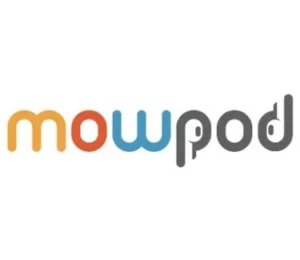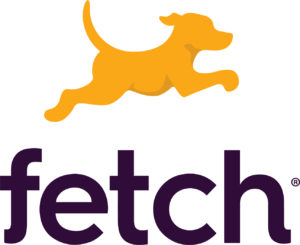LISTEN IN A POD APP
Filters
Phil Gamache | Humans of Martech podcast
Using Midjourney for Eye-Popping Imagery — Phil Gamache // Humans of Martech podcast
Phil Gamache, Co-Founder of the Humans of Martech podcast, explores the future of martech. In addition to featuring industry experts and providing valuable content to an audience, podcasts need visually appealing elements to stand out in a crowded landscape. AI image generators like Midjourney are game-changers for podcasters looking to create distinctive and eye-catching visuals…
Play PodcastPhil Gamache | Humans of Martech podcast
Meet the Humans of MarTech — Phil Gamache // Humans of Martech podcast
Phil Gamache, Co-Founder of the Humans of Martech podcast, explores the future of martech. While marketing has become increasingly data-driven and technologically advanced, it's important not to lose sight of the human and creative aspects. The Humans of Martech podcast aims to maintain a balance by highlighting the human and creative aspects of marketing alongside…
Play PodcastVishal Sood | Typeface
What level of content personalization can we expect? — Vishal Sood // Typeface
Vishal Sood, Head of Product at Typeface, explores the debate between automation and creativity and dissects the significance of each in marketing. In the ever-changing world of content, it's crucial to identify what truly connects with your audience and leverage it across different channels. Yet, personalizing content for each channel, audience group, and geographical location…
Play PodcastVishal Sood | Typeface
Automation vs creativity: What is more important? — Vishal Sood // Typeface
Vishal Sood, Head of Product at Typeface, explores the debate between automation and creativity and dissects the significance of each in marketing. Creative thinking is what generates innovative ideas, connects emotionally with the audience, and builds a brand's identity. While there is a fear that automation may eventually replace the creative elements of marketing, automation…
Play PodcastJennifer Jones-Mitchell | Human Driven AI
How Generative AI Solves Branding Problems — Jennifer Jones-Mitchell // Human Driven AI
Jennifer Jones-Mitchell, Founder and Creator Coach at Human Driven AI, explores AI transformations in generative AI. Generative AI, particularly AI avatars, are revolutionizing branding by offering cost-effective, flexible solutions for content creation, reducing disruptions from personnel changes. This empowers brands to enhance messaging and reach broader audiences more efficiently. Today, Jennifer discusses how generative AI…
Play PodcastJennifer Jones-Mitchell | Human Driven AI
AI Transformation Strategies — Jennifer Jones-Mitchell // Human Driven AI
Jennifer Jones-Mitchell, Founder and Creator Coach at Human Driven AI, explores AI transformations in generative AI. Harnessing artificial intelligence offers vast potential benefits, including increased efficiency, improved decision-making, and enhanced customer experiences. Yet, to unlock these advantages, businesses must first develop a comprehensive AI transformation strategy. Today, Jennifer discusses AI transformation strategies.
Play PodcastBrian Mandelbaum | Attain
How to ethically collect targeted data — Brian Mandelbaum // Attain
Brian Mandelbaum, CEO of Attain, explores leveraging permissioned consumer data and ethical targeted data collection. Privacy regulations can seem burdensome, but at their core, they're about getting permission from consumers, being clear about data use, and respecting opt-outs. But the ethical dilemma persists: why hide crucial details in privacy policies? Today, Brian discusses how to…
Play PodcastBrian Mandelbaum | Attain
Why permissioned consumer data > Retail Media — Brian Mandelbaum // Attain
Brian Mandelbaum, CEO of Attain, explores leveraging permissioned consumer data and ethical targeted data collection. Consumers are increasingly becoming concerned about how their data is used by companies. Stringent privacy regulations like GDPR and CCPA have compelled businesses to prioritize obtaining explicit consent from consumers before collecting and using their data. Today, Brian discusses why…
Play PodcastSean Simon | Cogent
Evaluating MarTech solutions for your needs — Sean Simon // Cogent
Sean Simon, Co-Founder of Cogent, looks into discovering and evaluating martech solutions that match your business' needs. Brands can spend up to a year in the search for the right technology solution which inevitably impacts their business. Cogent's platform expedites this process, enabling brands to quickly select the best solution and start generating revenue. Today,…
Play PodcastSean Simon | Cogent
Discovering MarTech solutions that solve your problems — Sean Simon // Cogent
Sean Simon, Co-Founder of Cogent, looks into discovering and evaluating martech solutions that match your business' needs. Brands often lack the experience to ask the right questions when seeking technology solutions for business problems. Consequently, they let vendors take the lead in conversations, resulting in solutions that are unable to grow with the business. Today,…
Play PodcastAbout Business Class: B2B
What is B2B (Business to Business)?
B2B or business-to-business refers to products and services that are designed, built, and marketed specifically for other businesses.
The Difference Between B2B and B2C (Business-to-consumer)
The main difference between B2B and B2C (Business-to-customer) is that B2B covers transactions that are done between companies as opposed to B2C, which categorizes transactions between a business and an individual customer.
B2B Marketing vs B2C Marketing
Many B2B marketers would argue B2B marketing is more complex than B2C marketing. Each market type has its own complexities.
Unlike B2C sales and marketing, which is oftentimes targeted toward persuading an individual customer to purchase a product or service, B2B sales and marketing are targeted toward convincing multiple customers such as an entire company and its stakeholders.
In the case of sales of B2B products and services, you not only need to convince the main decision-makers or buyers like the C-suite staff, but you also have to convince them that the entire department or company will benefit. Unlike most typical B2C businesses, the buyer in a B2B business is not the only one impacted by a purchase. It's oftentimes the entire company.
Faced with this challenge, many B2B companies focus heavily on generating high-quality B2B leads and ensuring their journey through the funnel is as efficient as possible to drive sales.
Apk Ticket blog is dedicated to delivering you the best news about your Android devices. We're also committed to helping you find all of the features and applications that you need to live your best life
How to generate B2B Leads & Sales
- Develop a Content Marketing Strategy:
- Create a strong B2B content marketing strategy that adds value to potential buyers, increases lead generation, and drives sales.
- Optimize your B2B Website:
- Set up your B2B website to a self-service where website visitors can be educated and B2B buyers are given the information needed for the decision-making process. Many B2B eCommerce websites have done this very well (e.g. Alibaba.com) where B2B customers can browse and purchase directly from the website.
- Offer a Free Trial:
- Offer a free trial period to new B2B customers. This permits them to use the product or service in the context of their business risk-free and helps potential customers make a decision if they are unsure. When businesses can easily see the impact your product or service has on their operations, you're more likely to obtain more sales.
- Provide Tutorials:
- Create a thorough tutorial system in order to guide the buyer through the product or service so that implementation is as smooth as possible.
B2B in the MarTech World
When people think of B2B, many think of it in the context of a traditional supply chain where a company making a physical product is purchasing components and raw materials from another company in order to sustain its manufacturing process.
The reality is that B2B exists in the digital world in much the same way that it exists in the physical world. Many of the stakeholders in corporate companies and start-ups rely on software built by other businesses in order to build their own digital products or services.
The combination of these various B2B MarTech tools is called their B2B MarTech stack.
How to build a B2B MarTech Stack
If you're building a B2B MarTech stack, there are a few categories that need to be covered. These include:
- Customer Relationship Management (CRM)
- Tracking relationships across your sales and marketing departments is essential. Your customer relationship management tool is key to doing so in order to nurture and convert B2B customers at various touchpoints. Consider using tools like Hubspot CRM, Salesforce, or SAP CRM.
- Marketing Automation
- With the evolution of data collection, consumers today expect more than just cookie-cutter ads that can apply to a large group of people. They want personalization. Nowadays, marketing automation tools like HubSpot, Marketo, and Pardot offer AI and machine learning feature to make it easier to personalize your communication.
- Content Marketing Management
- Content has been king and remains king. A robust content marketing management system is essential for a B2B marketing strategy. The best-in-class platforms offer a combination of workflow management, editorial calendars, and an array of features that make publishing content easy and efficient. Tools we recommend include Contently, DivvyHQ, and Kapost.
- Customer Data Platforms
- "Data is the new oil," is a common phrase marketers have encountered throughout the industry. Given its value, the unification and analysis of customer data should definitely be a priority for your company. Customer data platforms include tools like Segment, Optimove and Exponea.
The Importance of MarTech in B2B
By itself, B2B marketing is a relatively difficult task given it requires persuading a collection of people, such as teams and departments, at a time in order to make a sale. However, when put into the context of the present-day marketing and advertising industry, the rise in ad-blockers and the general disdain consumers have when it comes to being marketed to on social media and search, we see that executing B2B marketing end-to-end is growing increasingly difficult.
With negative sentiments surrounding advertising increasing, it's clear B2B marketers need to revise their approaches, and that approach is personalization.
In order to facilitate personalization, B2B marketers use MarTech tools, which help them access, organize, analyze, unify and action the data. The ability to personalize their marketing in this way allows them to craft outreach messages, nurture campaigns and calls-to-action that customers actually relate and respond to.
If you're interested in learning more about B2B, B2B marketing, B2B companies and B2B sales, check out the episodes listed below from the MarTech podcast.
They include interviews with marketers and influencers in the B2B MarTech industry who share their advice, strategy, and the best B2B tools on the market.
Read MoreRead Less
Sponsors of the MarTech Podcast















































